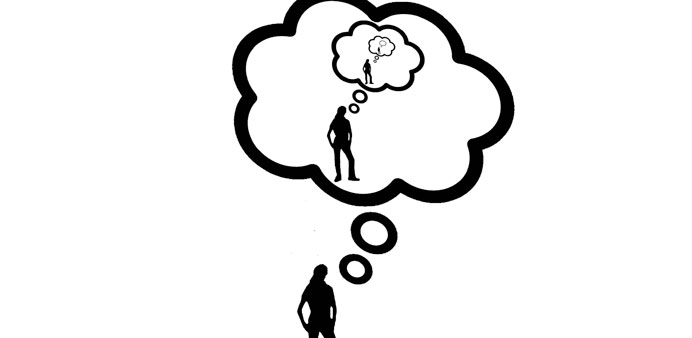By Oliver Burkeman/London
The feeling you’re left with after reading The Art Of Thinking Clearly, by Rolf Dobelli – a bestseller in Germany, newly translated into English – is that we humans are a pretty disastrous bunch.
Many books (and this column) have catalogued the cognitive biases to which we’re prone, but Dobelli’s may be the most comprehensive such work yet: a melancholy compendium of how we fear terrorism when we should fear driving; how we think “98% fat-free” is healthier than “1% fat”; how we’re desperate to find a single reason for events with multiple causes (“What was the real motivation for the Iraq war?”), etcetera. But Dobelli unwittingly reveals something else: that this notion of “thinking clearly” is really very foggy indeed.
Take Dobelli’s argument that we should give up consuming news, because it encourages errors, stresses people out and wastes their time. If a bridge collapses when a car’s driving over it, Dobelli complains, the media will focus on “irrelevant” details, such as the driver’s life story, instead of “relevant” ones, such as the structural problems of bridges. But “relevant” according to whom? At the risk of sounding pompous, perhaps my definition of a life well lived includes engaging with fellow citizens’ deaths, not walling myself off. Or – less pompously – take celebrity gossip: if I find it entertaining, and I value being entertained, where’s the irrelevance?
Of course, as a journalist, I’m hopelessly biased; for many people, a news ban might really be best. But it isn’t automatically a path to an objectively “clearer” way of thinking. And the person who values news isn’t necessarily making a mistake.
To see the problem with “thinking clearly” more clearly (sorry), consider the “endowment effect” – the way we hate losing things more than we enjoy gaining them. In the early 1990s, Daniel Kahneman and his colleagues gave coffee mugs to half a group of undergraduates, then asked the mug-owners how much they’d be willing to sell them for, and the non-mug-owners how much they’d be willing to pay.
On average, owners thought the mugs almost twice as valuable, simply because they were theirs. But is this as confused as it seems? Newer research suggests what’s going on is the first glimmering of sentimental attachment, as you might feel for your late grandfather’s watch. Once owning something has become a part of who you are, it may not be irrational to value it more.
It’s no surprise that Dobelli’s background is entrepreneurialism, where life must sometimes feel like a constant stream of weighty, zero-sum decisions. (News is worthless, he thinks, if it doesn’t help you “make a better decision about a serious matter affecting your life, your career or your business”.) But the real art of thinking clearly doesn’t involve adopting someone else’s view of rationality; it means ironing out the conflicts between your own values and daily behaviour.
If your life-philosophy involves not spending a moment on celebrity news, yet you fritter hours absorbing the misdeeds of Lindsay Lohan, you’ve got problems. If you believe material possessions are irrelevant, but cling to your coffee mugs, it’s time for a rethink. But it doesn’t follow that crockery-cherishing or Lohan-watching are mistaken per se. I’m tempted to call it the “clarity bias”: the assumption that those who don’t share your values aren’t just different, but are wandering, confused, in the fog.- Guardian News and Media

